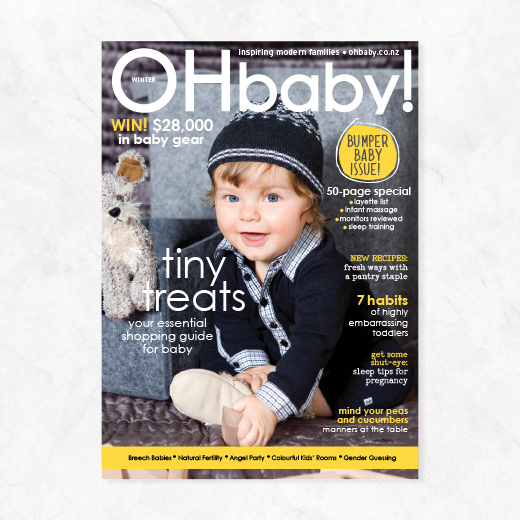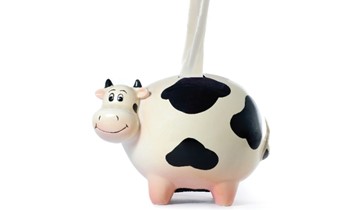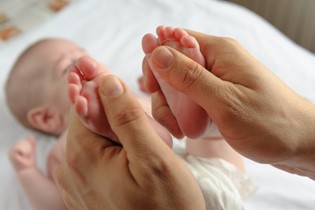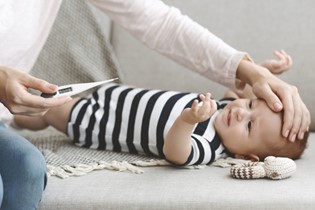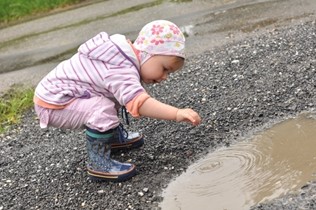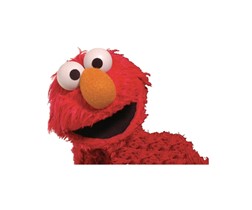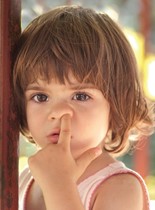Embarrassing toddlers
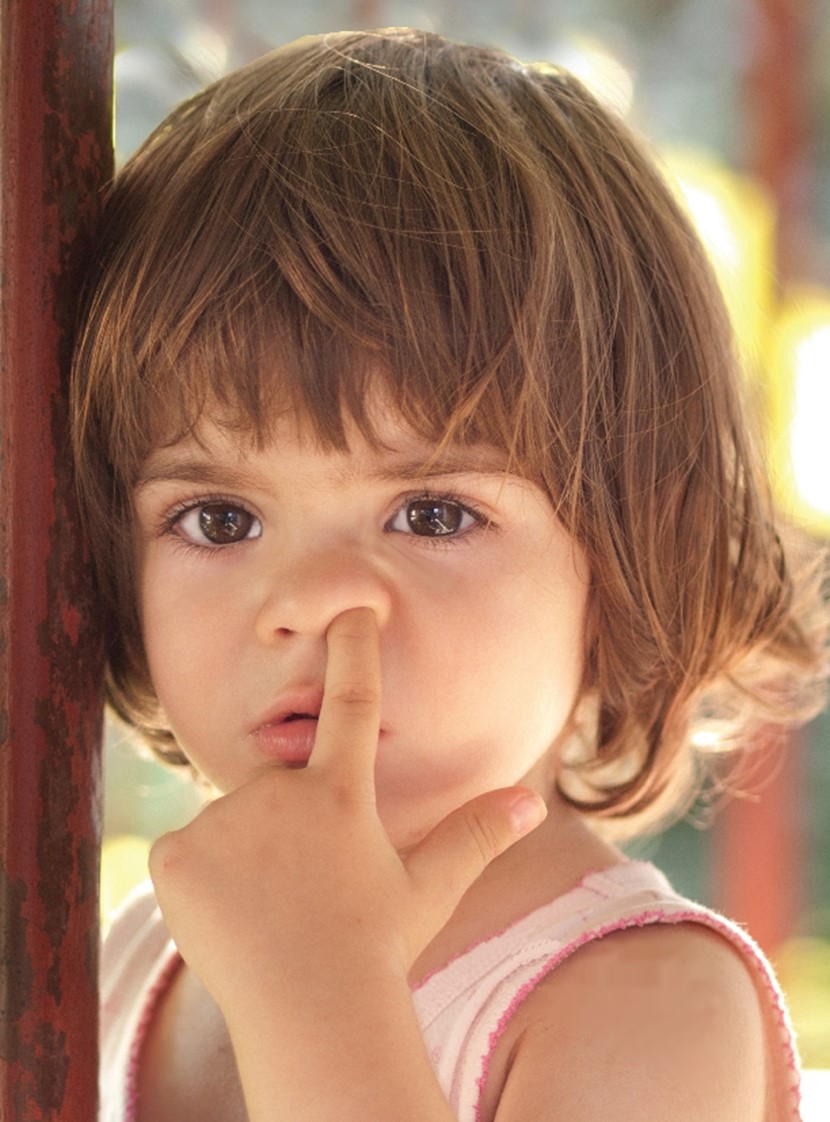
Oh, the shame!
It's enough to make you hide at home until your child reaches the sensible age of 10. Lisa Glass reveals the seven most embarrassing habits of toddlers and preschoolers and how to deal with them
Remember before you had children? Looking at little terrors out in public, and wondering why their mother wasn't "fixing it" somehow, naively assuming that your children would never end up like that because you would be such a great parent. Yes, me too. I'm not a woman of faith myself, but I think that goes under the heading: "If you want to make God laugh, tell him your plans."
We're constantly being told from day one "every child is different" but a certain core of behaviours seems to crop up more often than most. They are as follows:
1. remarks that make you squirm
Your child is inquisitive with a sharp eye and a challenging mind. Yay! You must feel so much better when little Lola loudly asks that beer-bellied man whether he has a baby in his tummy… and when wee Liam helpfully points out that the woman at the checkout has a grey moustache.
Not long ago I was at Farmers with my three year old. Two women were working behind the same counter. Little Miss Delightful proclaimed that she didn't want to wait in line for "the lady with the dark skin". Yes. She really said that. "Mortified" doesn't begin to describe it.
I found out later she preferred the other woman serving because she was wearing a "beautiful necklace like a princess".
I reacted by quickly shutting my daughter down, and having a talk at the nearest opportunity. According to Child and Adolescent Clinical Psychologist Dr Melanie Woodfield, that was pretty much the right thing to do - even though what we might prefer is to walk off and pretend she's somebody else's child.
Dr Woodfield says it's only natural that small children speak their minds and ask difficult questions. Not only is it a normal part of their cognitive development, it's also a logical side effect of children exploring their world and parents stressing the importance of honesty.
Inappropriate questions and comments are most common between the ages of two and five. That's when children have language but haven't learnt inhibition, which develops in the early school years.
What's important not to do (and easier said than done) is letting your own mortification guide your reaction. By all means quickly apologise to the victim but don't over-react. As a lawyer might say, there was no "malice aforethought" so it's important not to lose your temper or react out of embarrassment. Like I say, easier said than done, right? But while we're re-living those "Mummy needs a sauvignon" moments, let's move on to another source of mortification…

2. personal information revealed
It must be fascinating to be a kindy teacher - hearing all those inappropriate tidbits about little kids' home lives.
Once, when waiting for my daughter, I was accosted by a charming little girl who told me her mum would pick her up soon, right after she'd been to the "booty therapy" (honestly) to "get her undies hair fixed". I could only smile and nod, being too afraid to give away any information on my own "undies hair" situation.
And who can blame these littlies? As Dr Woodfield points out, it's asking a lot to expect little children to be able to discern the difference between what's harmless public information and what's private. That's especially true when people are speaking (or arguing) freely about the same topic at home. The skills required to make that distinction are quite sophisticated, and it's a pretty safe assumption that the little chatterbox isn't meaning to embarrass you.
And just so you know, while I was hearing about the "undies hair", my daughter came back. Listening attentively she helpfully suggested I might want to see the "booty therapist" about "all that hair in your nose". Thank you, darling.
3. ingratitude and rudeness
Your little angel may not always be angelic, but at least most of the time he's reasonably predictable. You know when he's likely to be tired, antsy, hungry etc, and you're pretty good at keeping him in line, right? So how come that all goes out the window just when you need him to be on his best behaviour? Well, as we're told from babyhood, children really do thrive on routine, combined with variety and stimulation.
A small boy I know managed to reduce his great-grandmother to near-tears when he refused to eat the carefully prepared meal she'd made him, yelling, "You should have gived me what I like! This food looks like poo-poos! I telled my mummy I didn't want to come here!"
The three-hour trip to Tauranga, the "cute" dungarees that were rubbing his inner thighs and the dish of corned beef and peas all combined to turn a little sweetie into a little horror.
When you think about it, putting a small child in a new situation and expecting him to display perfect behaviour is pretty much a recipe for a melt-down - unfamiliar place (maybe exciting, maybe too stimulating), clothes he's not supposed to get dirty in, strange grown-ups asking strange questions, Mum or Dad possibly a little more uptight than usual and funny food to boot. In that sort of situation, Dr Woodfield says, preparation is all. Rehearsal and planning ahead of time can help remove anxiety (on your part and theirs), and set up ways of coping with any unfamiliarity.
Talk through what might happen and how your wee one should behave. Include some problem-solving if the child is old enough, working out what he could do if he doesn't like the food that's offered, or someone gives him a gift he doesn't really like. Dr Woodfield suggests working out consequences for unacceptable behaviour ahead of time and trying to make them as natural as possible (for example, if you don't eat dinner, you won't get dessert).
Another stumbling block is the potential presence of other children whose parents have behavioural expectations that may be different to your own. It all adds up to a potential headache when you're meant to be having fun, so remember to pick your battles; they're only little, and no one expects them to be perfect.
4. tantrums
Ah, the terrible twos… the tyrannical threes… the feisty fours… shouldn't he have grown out of tantrums by now?
I got my two year old one of those walking harness things. You know the ones, prettified dog leashes which I swore I'd never inflict on MY child… until she ran away in a mall and it took two security guards and a PA announcement to find her, shaving 10 years off my life. Well, it's a dismal failure. If Miss Thang decides she doesn't want to go somewhere, she throws herself onto the floor. If I try to get her to move, she starts up with a high-pitched keening that reminds me of widows mourning ships lost at sea or the lonely cry of a starving hound. Only louder. And in the mall. With people looking. Wait! Is that woman getting out her phone? Is she… calling CYFs?
Tantrums don't just erupt in public but when your child has one at home you can ignore it more easily (or put your hands over your ears chanting "make it stop, make it stop…" In public though, you need to take steps.
The best thing to do is not reward the behaviour with your attention. If that means cutting a play-date short and going home or heading straight to the checkout with half of your list un-ticked, so be it. You're showing you're the boss.
Whatever you do (and I know you've heard it before) don't cave in and give the child what he wants. Doing that teaches him that the way to get what he wants is to make a fuss.
There's a pattern emerging for how to handle these cringe-making behaviours: preparation. Dr Woodfield says it's easy to forget the basics sometimes - ensure your child is fed, watered, not too tired, not too bored and look critically at what you are asking and expecting of them. Is that trip to the supermarket really going to take only 15 minutes? Or is it likely to stretch to 40? Asking a small child to sit quietly for an extended period of time while surrounded by temptation (and with a parent who is not giving him her full attention) may be a bit much.
For older children, the pre-outing talk can help. "If you sit nicely while I'm doing what I need to do, we can do something you want to do" (like the playground). Older kids (three and a half and up) may benefit from a few feelings management skills. My older daughter has honed the meltdown to a fine art but I'm slowly making inroads by teaching her to recognise the "hot, scratchy" feeling she gets when she's getting worked up. Teaching her skills to stop that feeling erupting is a slow process, but it's better than having a tantrum myself.
5. biting or hitting another child
For some reason, this is one of those behaviours that rings alarm bells with me. When at two years old my elder daughter bit me so hard that it broke the skin (through clothes), I wondered if she was headed for torturing pets and lighting fires. But fear not. Apparently biting and hitting are so common that you're a rare and lucky parent if your child doesn't do it.
If your little biter is teething, that may be a factor, but in older children, such behaviours are more likely to be linked to issues of communication. Consider whether he was a little later to speak than his peers. It's not going to be a long-term issue, but may indicate difficulties in trying to explain what he wants.
Biting and hitting tend to become an issue around the two year mark, when children are looking for more stimulation from other people or objects but don't have the skills to ask for it.
Even though it goes against our instincts, Dr Woodfield says the most important thing is not to get the child to apologise. By all means give it a shot and express your dismay to the other parent or child. Definitely comfort the victim and check that he's okay, but the key message your child needs to hear is that biting hurts.
We sometimes forget that the cause-and-effect realities of life we take for granted are all new to our toddlers. He doesn't know his little playmate is crying because she is in pain, all he knows is that the bite/hit/whatever drew an interesting response, and he might just do it again to see if the result is equally dramatic.
Teach him to replace the undesirable behaviour with another that serves the same purpose and stress the need to be gentle (remembering that "gentle" is just a word until it's demonstrated for him).
When your child has just hit or bit another when you're away from home, your options depend on his age. Actions such as time-out can be used if the child is old enough, and taking him out of the situation might just be the simplest and safest thing for all concerned - especially if the other child is agitated.
Bear in mind your child's developmental age. You're the best judge of what you should be able to expect of your child, not the other parent (who's currently giving you the evil eye).
And one more thing on biting, tempting as it may be, don't bite your child to teach him a lesson, unless the lesson is, "My mum likes to cause me pain."
6. inappropriate touching
It's such a dilemma, isn't it? As a mum of two girls I strongly want them to feel good about their bodies. Except, that is, when they lie sprawled, legs asunder, knickers askew, looking like Lady Gaga without the bedazzling. Miss Two will, under sufferance, allow me to push her in the buggy, but slouches down with her legs flung apart in the most inelegant way. Not to forget as well that littlies operate under the dictum, "If it feels good, do it," which can lead to no end of embarrassment for parents.
A friend came to regret her use of cute words for her children's privates when her little boy started pulling down his swim shorts at the paddling pool and telling other kids, "Look! Winky says hello!" She put him in those all-in-one togs after that.
The key to avoiding your blushes is to reiterate the old "time and place for everything". My big girl loves nothing more than going bare bottom ("to give my bum some fresh air!") or completely nudey-rudey, but she has come to understand that those are things we can do only at home with our family.
What not to do? Well that would be what so many of us were brought up with: "Oh yucky, don't touch there! That's dirty/nasty/naughty! Bad boy!" Hardly a recipe for healthy body image.
7. swearing
The first time you hear your mini-me enunciate a swear word with perfect emphasis, it's one of those half-laugh half-cringe moments. The first time they do it in front of Nanna and Grandad or the daycare teacher it's just all cringe.
It never fails to amaze me how you can talk yourself hoarse asking your children to eat their dinner/stop hitting the cat/wash their hands, but they will faultlessly pick up any curse word you manage to drop within a 50-metre radius.
Not long ago I was driving the girls to an appointment (and running late). Our side of the road was blocked by a truck and the oncoming traffic just kept coming, trapping my car. I thought I was muttering under my breath when I grumbled "Come on! Let me f***ing in!", until two minutes later when Miss Three piped up, "They should have let you f***ing in, shouldn't they, Mummy?"
I just knew her new phrase would make an appearance at pre-school some time soon, despite my best efforts to explain that, "Mummy shouldn't have said that."
Sometimes you can convince them they've heard it wrong. This came in handy after someone's dad (thanks, mate) uttered the phrase "Nasty little f***er". I managed to convince my wee darling he'd actually said, "Nasty little trucker" because he'd seen a mean 18-wheeler driver.
Unfortunately, the only real way to avoid having your verbal slips replicated is to keep adult talk away from little ears.
Dr Woodfield says her key take-home message is that every behaviour - good or bad - serves a function, and by putting ourselves in our children's position we often see the issue more clearly.
So do we just need to swallow a chill pill, cut another chunk of chocolate brownie, and wait it out?
Truck that for a joke.
Lisa Glass is a former TV journalist and mother of two pre-school girls. She had only one resolution for 2012: To be perfect. By her own reckoning she is about 25% of the way there, around 10% of the time.

AS FEATURED IN ISSUE 18 OF OHbaby! MAGAZINE. CHECK OUT OTHER ARTICLES IN THIS ISSUE BELOW
